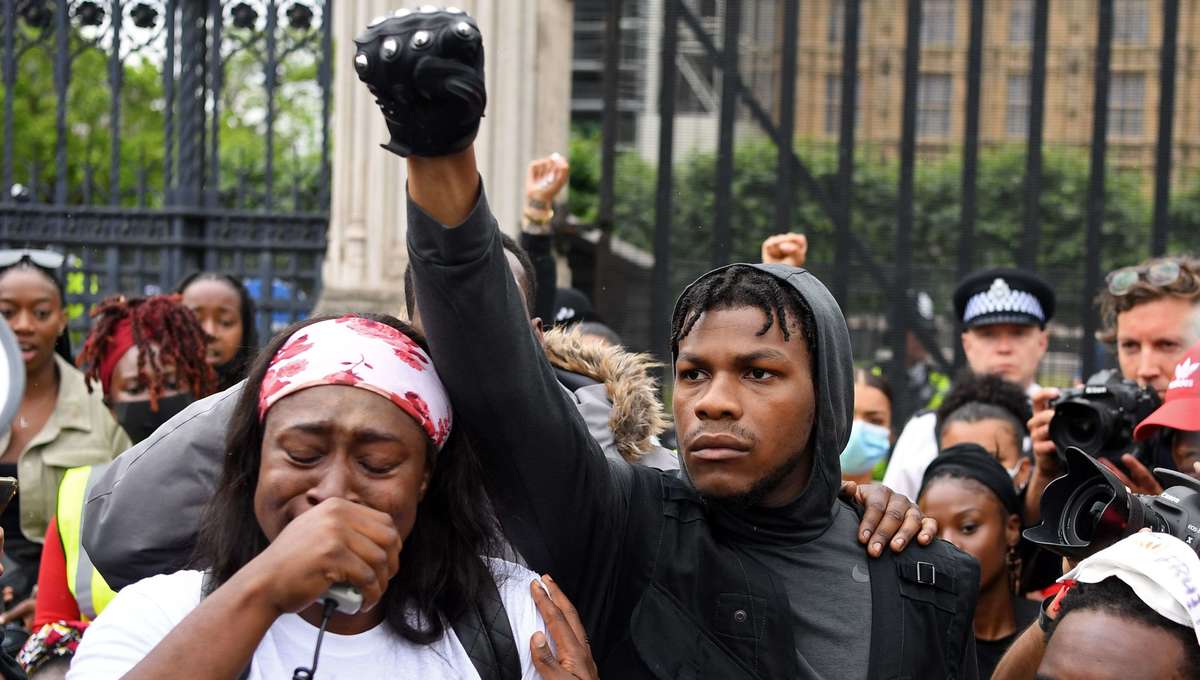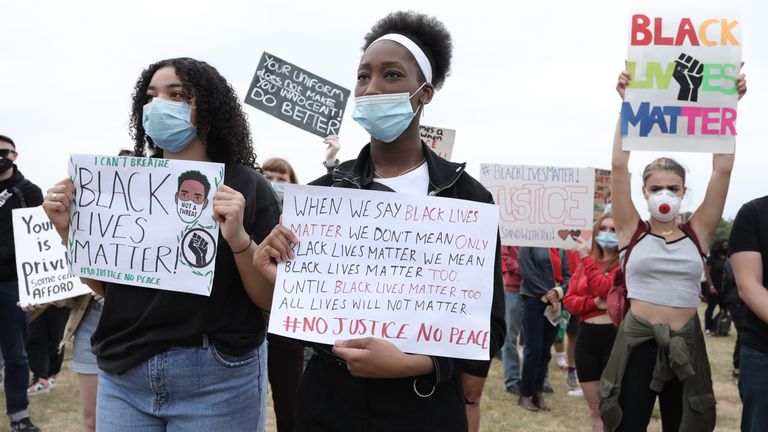London and multiple cities across the UK have experienced days of protests in solidarity against police brutality after the death of George Floyd at the hands of a white police officer.
Stars such as John Boeyga attended the march on Wednesday 3rd June and spoke out against the injustice. The solidarity in the black community was evident, the impact that the death of George Floyd has had on the black diaspora continues to be palpable.

Protests are part of the black trauma cycle
Protests across the world in the UK, America and even Australia have shown us that black lives DO matter. The world responded, showing unparalleled support.
Ever since the beginning of the protests, protesters and other criminal justice reform advocates have proposed the banning of tear gas and certain chokeholds. Thankfully through court orders and policy changes, Minneapolis and Seattle have implemented these reforms. However, it is not enough, as the culture of the police remains toxic towards the black community.

Contemporarily when we see the death of a black person there is a cycle we have been manufactured into.
Black person killed>shock activism> performative activism surges>industry profits>media cycle ends>state retaliates against activists> allies return to biases> murder is acquited>short lived media resurgence>public forgets.
The cycle then restarts when another black person is killed. We must break this cycle. We need a longstanding movement, not one that dies out once the media no longer pays attention or when it is no longer trending on social media.
Protests demand longevity, organised chaos and careful management to be successful. The people are active agents to force change. Lives were once put on the line, protestors had everything to gain and nothing to lose. Saturated with western world comforts and first-world privileges do protests hold the same weight and magnitude as they did previously, during the Civil Rights era?
Boycott Institutions / Support black Businesses

One of the greatest forms of protesting is a direct boycotting best epitomised through the Montgomery Bus Boycott in Montgomery, Alabama. Rosa Parks was jailed for refusing to give up her seat on a public bus to a white man. At the time it was a violation of the city’s racial segregation laws.
The Montgomery Bus Boycott was sparked by the arrest of Rosa Parks on 1 December 1955. It was organized by Martin Luther King, Jr., a young baptist minister at the time. The boycott became a 13-month mass protest, and as a result, the U.S. Supreme Court ruled that segregation on public buses was unconstitutional.
Those who took part in the boycott carpooled or walked miles to work and school. African Americans at the time accounted for 70% of the Montgomery bus ridership meaning the municipal transit system during the boycott suffered severely.

The time period may be different, but the principle is the same; you treat us unethically, immoral and devoid of human rights then we take our business elsewhere where we are valued.
Thus highlighting the economic consequences of racial segregating the black community, as we are the largest consumers. If we poured into our own community, our cup would runneth over and create a recirculation of black wealth.
Blackness can thrive. Economics is the way forward
The Black community in the UK makes up 3% of the population which is seemingly minute. Yet according to the Institute of Practitioners in Advertising (IPA), the spending power of Black consumers is £300 billion.
In an article by Sonia Brown of National Black Women’s Network, Daniel Lister, Founder of My Black Market, wrote in 2011 that “the Black community spends 95% of its money outside of the community. Of the remaining 5% that is spent within the community, 3% goes to non-Black owned businesses, leaving us with only 2% of our income; and nobody can live off 2% of their income.” Government research in 2019 showed that almost a third of black people in England want to start their own business, only 4% manage to do so – a level lower than any other ethnic groups.
According to 2017 research by the Economic and Social Research Council, businesses run by Black and minority ethnic (BME) entrepreneurs contribute an estimated £25-£32 billion pounds per year to the British economy. These statistics remind us black wealth can be created, with careful organisation and support.
The economy gravely suffers when we do not pour into it. As active consumers, protests are great but they do not hold the same weight, vigour or strength as our spending power. Financial xenophobia must be understood and practised at the core of any pro-black movement. This will empower us to create the institutions needed to uplift the community, which is paramount to the removal of a police force that is not equipped culturally, physically or systematically to police our communities.
Change must be sustainable, and blackness is a living element of our lives that never change, but the way we approach racism can change. As a community, we are aware that many institutions are littered with structural inequality. Its time we boycotted those institutions and supported black businesses, to generate a solid objective from our protest.


